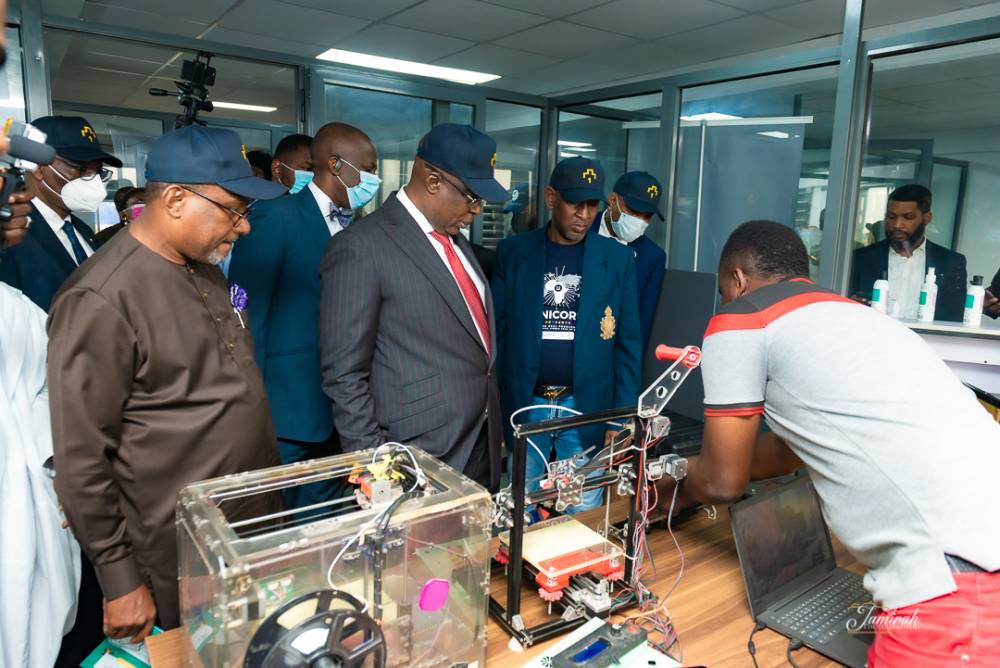
Unicorn Group launches Lagos Campus with plans to create more African Unicorns
What does it take to create Unicorns in Africa?
The journey began in 2017 with this question. At the time, the only African unicorns were eCommerce giant Jumia, South Africa's Promasidor Holdings, and Cell C.
Today, the story is different; Africa now has five unicorns.
A unicorn, coined in 2013 by venture capitalist Aileen Lee, is any private startup company founded after 2003 with a market capitalization of more than $1 billion. Lee chose the magical $1 billion valuation threshold because it implies that a company has either disrupted or created a new market.
Meanwhile, the increase in unicorn numbers in Africa may appear to be progress. It is a minuscule percentage of the total number of unicorns in the world and other countries.
According to CBInsights, there were over 600 unicorns on the planet in May 2021. India has approximately 100 unicorns, China has 162, and the United States has nearly 300 unicorns.
The majority of unicorns originate outside of Africa, owing to the continent's still-developing startup scene.
To help accelerate this growth, Unicorn Group, a pan-African investment firm, established a systematic approach for discovering and producing unicorns on the continent in 2017. Dr Akintoye Akindele is the unicorn team's leader, with members including Dr Wura Abiola, Kola Abiola, Olatutu Sholeye, Yomi Akapo, Prof Cesar Baena, Mark White, Akudo Nweke, Kunle Soriyan, and Dr Ponmile Osibo assisting. The team traveled the world to study various tech ecosystems in order to gain insight into what makes a unicorn and to develop a playbook for the African tech ecosystem.
On June 2nd, 2021 Unicorn Group hosted an event to commemorate the official opening of its Lagos campus. Numerous dignitaries were in attendance.
Timipre Sylva, Minister of State for Petroleum Resources; Babajide Sanwo-Olu, Lagos state governor, represented by his wife Joke Sanwo-Olu; Engr Simbi Wabote, Executive Secretary of the Nigerian Content Development Monitoring Board; and Mr Osh Agabi, CEO Koniku. Prof. Oluwatoyin Ogundipe, vice-chancellor of Lagos State University, and Prof Eyitope Ogunbodede, vice-chancellor of Obafemi Awolowo University, respectively, were also in attendance.
Unicorn Group’s ecosystem approach
The Unicorn Group discussed its multifaceted approach to increasing the number of unicorns in Africa at this event.
This strategy is comprised of programs designed for startups and early-stage companies, campuses strategically located throughout Africa to address infrastructure gaps, advisers for startups, and partnerships with leading global organizations.
The five-step program is appropriate for businesses at any stage of development. The first step is the Idea Lab, a program for entrepreneurs. The Idea Lab will run for a period of no more than six months.
The second step is the Hub program, which is designed for businesses that have a viable product. It will last no more than 12 months.
The third step is the incubator program, which is designed for businesses that already have commercial products that have gained market acceptance. It will last a maximum of two years.
The Accelerator and growth & scale programs, respectively, are designed for established and profitable businesses.
Concurrently, the programs would run. Intentionally, the Lagos campus, which is housed in a five-story building, is designed so that each floor accommodates a different stage of the program.
The Unicorn Group currently operates campuses in Lagos, Nairobi, Johannesburg, and Accra. In 2022, a fifth campus in Marrakesh is scheduled to open.
What distinguishes the Unicorn Group's approach from that of others? Ponmile Osibo, chief investor relations officer at the Unicorn Group, told TechCabal that the Unicorn Group's mission extends beyond financial investment.
“It is possible to give money to someone and have it vanish. We've come to understand that businesses require a breadth of support.”
“In 2017, there was no path to unicorndom. There are numerous business models. There are businesses that should begin monetizing immediately and those that should gain traction first. There is no such thing as an African playbook for this.”
The ultimate goal of any investment firm is to earn a profit (ROI). Among other things, the investment in establishing five campuses represents a sizable upfront capital commitment. I inquired as to how Osibo intends to recoup its investment.
“At certain stages, we collect equity in exchange for the capital and support we provide to these businesses, but it's much more than that for us,” he explained.
The bigger picture for the Unicorn Group is the economic impact. “Consider this, the average small business employs five people,” he said. If we are able to empower approximately 200,000 businesses, this will result in the creation of at least one million additional jobs. Consider the economic repercussions.”
Courses and Certification
Fundamentals of Science and Technology Course and Certificate
Information Technology Fundamentals Course and Certificate
I.T Project Management Course and Certificate
Management Information System - MIS Course and Certificate

